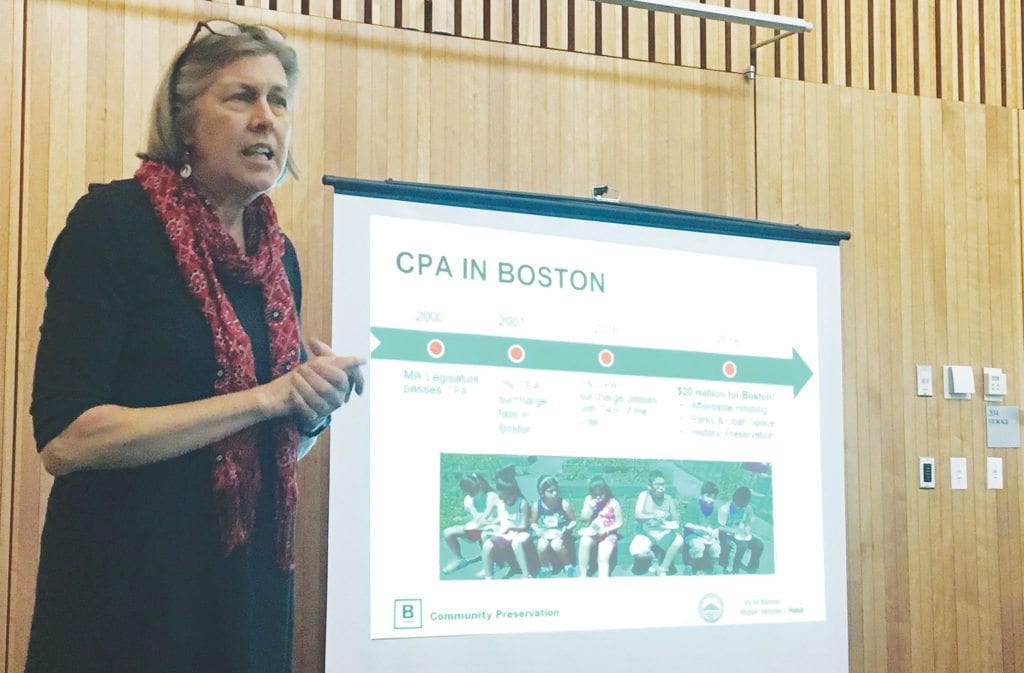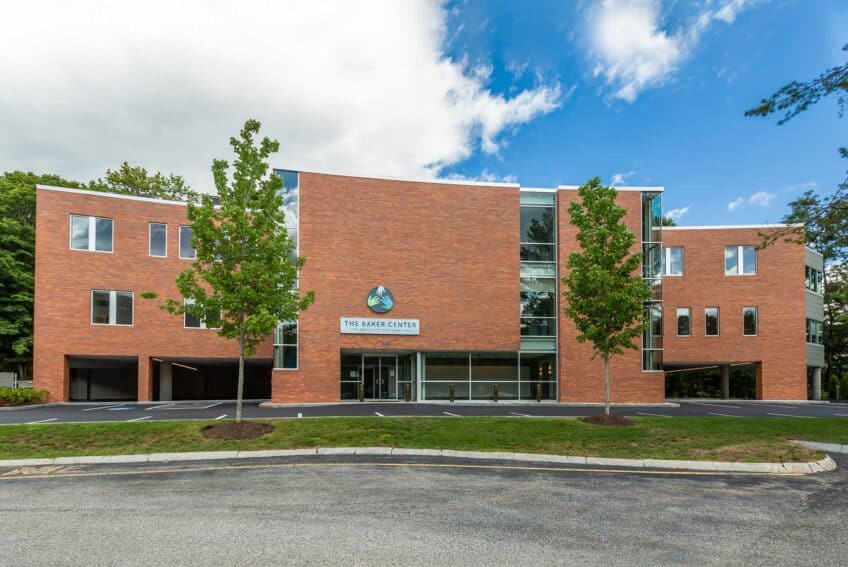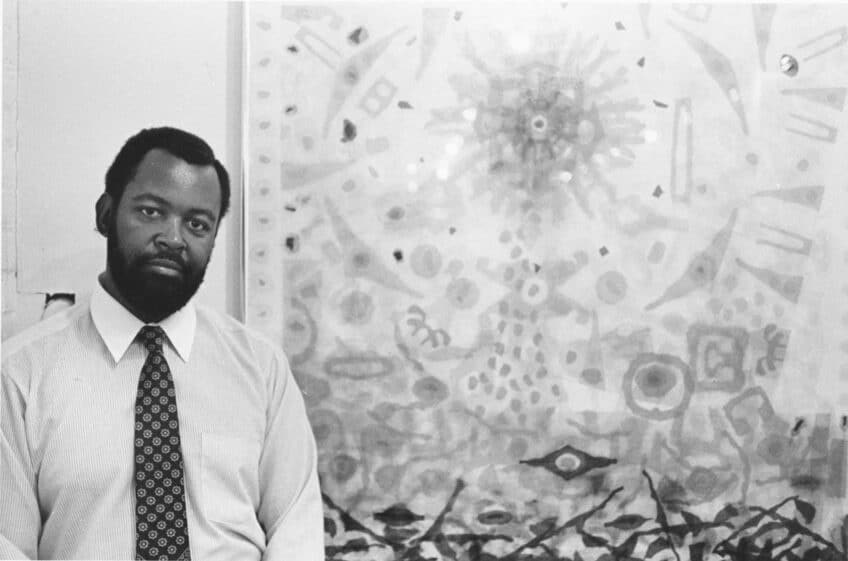City prepares to dole out CPA funds for local projects
Residents encouraged to submit ideas For housing, open space or preservation

At a public forum in Roxbury last week, state Rep. Chynah Tyler, Community Preservation Act Committee Director Christine Poff and the committee’s director of community relations, Thadine Brown, encouraged residents to submit project proposals for the Community Preservation Act pilot program by Friday, April 27.
In 2016, 74 percent of Boston residents voted “yes” to pass the CPA, which creates an annual fund of $20 million through a 1% surcharge on residential and business property tax bills.
The CPA fund is designated for affordable housing, historic preservation and open space or public recreation.
The pilot program will not implement the full $20 million but will support projects up to $500,000 that are shovel-ready and can be developed quickly. A larger funding round will be conducted in the fall.
“This pilot is a way for us to learn from it, because it’s so new, and figure out if our system works and get some projects off the ground,” said Poff at the community forum.
Poff said that they can only consider proposals that are related to the purchase, construction or preservation of affordable housing, open space, parks and historic resources, and cannot fund a project’s operation, maintenance or programming.
Brown said, “We encourage community members and groups to come together. That’s why in the application, we ask, ‘How many individuals support your project?’”
According to Brown, CPA applications will be reviewed by the nine-member CPA Committee, which includes five state-mandated members from the Boston Housing Authority, the Boston Planning and Development Agency, the Boston Parks Commission, the Boston Conservation Commission and the Boston Landmarks Commission. The remaining four are community members elected by the City Council.
Committee members serve a three-year term, for up to two terms.
The process will be guided by the Community Preservation Plan, which draws from other City of Boston plans such as Imagine Boston 2030 with an emphasis on equity, affordability, connectivity and resiliency.
“It’s really a social justice document,” said Poff, referring to the CPA Plan. “It’s about equity and considering corners of the city not considered before.”
According to Brown, about 50 individuals and groups submitted a project interest form and out of that number, she expects at least 15 will continue to formally apply.
“Nearly every church in Back Bay has shown interest in applying for roof renovations,” said Poff while also mentioning that another popular interest among residents is urban farming.
Among those vying for CPA funds are Tommy’s Rock Urban Farm in Roxbury and Fowler Clark Epstein Urban Farm in Mattapan.
Roxbury resident Lorraine Wheeler attended last Thursday’s meeting as a representative of the Howes Park Civil Rights Tribute project. Wheeler said that the public art installation honoring the civil rights movement and the various individuals that contributed to it is partly funded by the city, but she is hoping that the CPA will fund the remaining $200,000 needed to complete it.
Projects under review will be posted on the City of Boston website by May 5, the CPA Committee will vote on the final projects on June 5 and then the City Council will give the final approval by June 20.






